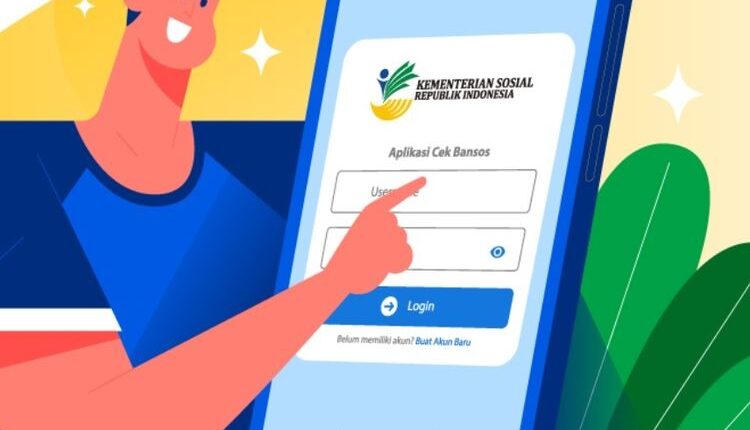Appreciate the BLT Distribution Policy
By: Raditya Rahman)*
The policy for distributing Fuel Direct Cash Assistance (BLT) is the right policy. The policy needs to be appreciated because the subsidy will be more targeted and not enjoyed by the wealthy.
Economic observers stated that the distribution of Direct Cash Assistance (BLT) as a form of mitigation of the fuel price adjustment was indeed far more effective than continuing the fuel subsidy.
Subsidies for fuel oil (BBM) have caused a number of problems, the main one being the burden of the state budget borne by the state. It is said that around Rp 502 trillion of the state budget has been allocated only for the fuel subsidy. Moreover, in fact, in the field, it is found that the audience of the government’s fuel subsidy is around 70 percent of them, who incidentally can afford it.
Departing from that, then the government immediately started the idea to reallocate APBN funds so that they would not be too burdened and so that the distribution of fuel subsidies could be truly targeted only for people in need, the article was basically that the subsidy was only intended for the poor as a source of income. form of government assistance to the people.
Therefore, currently the fuel price adjustment policy has been officially enacted, but on the other hand the government provides the distribution of Direct Cash Assistance (BLT) as a form of social support only for vulnerable communities affected. In this way, it is hoped that it will be able to further ease the burden on the State Budget and on the other hand, truly uphold the principle of justice because only the people need assistance.
It should also be noted that the actual fuel price adjustment policy has been carefully calculated by the government. However, there is no longer the best thing that can be done, especially in times of uncertainty like now, and inflationary fluctuations in several developed countries in the world have caused crude oil prices to continue to skyrocket.
The President of the Republic of Indonesia, Joko Widodo, said in a press conference on Saturday (3/9) that the fuel price adjustment was the last option made by the government. Furthermore, he also explained how the scheme of providing BLT to the community, in which later there will be social support of Rp. 150 thousand for 4 months, given to underprivileged families.
Furthermore, the distribution of BLT will also target workers who have salaries below Rp. 3.5 million per month, including the social benefits that will be handed over to online motorcycle taxi drivers and public transportation.
The distribution of BLT is also considered to be something that has been proven to be very effective in increasing people’s purchasing power. In fact, the Minister of Finance Sri Mulyani stated that the government itself had allocated funds amounting to Rp. 24.17 trillion which was diverted to carry out the social assistance as an effort to mitigate the impact of the fuel price adjustment.
It is planned that the distribution of BLT will be given to around 20.65 million families, along with around 16 million workers. No half-hearted, even Sri Mulyani also added that with the calculation data, if it is associated with poverty, the social support provided by the Government will be able to reduce the poverty rate by 1.07 percent.
With the government’s experience regarding the management and distribution of BLT to the community, not a few parties feel that the government will definitely be able to very well run the scheme again. The reason is that when Indonesia was hit by the COVID-19 pandemic some time ago, social assistance was also given to people affected by the pandemic.
In November 2014, President Jokowi himself also provided social support to the community and continued with the launch of three cards at once, namely the Prosperous Family Card (KKS), Healthy Indonesia Card (KIS) and Smart Indonesia Card (KIP). At that time, the assistance was distributed in the form of giropos savings of 14.5 million with the amount of Rp. 400 thousand accompanied by PT Pos Indonesia which distributed 1 million independent e-cash assistance.
With this series of policies, finally the funds managed by the State Budget were able to be allocated into other forms of compensation such as additional assistance for the family of hope program of Rp. 1.7 trillion, rural infrastructure development of Rp. 4 trillion, productive economic programs of Rp. 1.6 trillion, of which Rp. 700 billion for poor people and micro businesses, Rp 600 billion for farmers and fishermen. Other assistance is the revitalization of non-productive land in the amount of Rp. 300 billion, improvement of community skills and competencies of Rp. 800 billion.
Regarding BLT BBM which is currently being disbursed by the government, Main Analyst of Political Economy of LAB 45, Reyhan Noor stated that social support is more effective in easing the burden on the poor when compared to when the government continued to subsidize fuel which was completely ineffective because in fact it could be purchased. by anyone, including even people who are classified as capable.
With good data management and a comprehensive study that has been carried out by the government, it is not surprising that the distribution of BLT BBM is very well targeted because it is much clearer who the recipients are with the database already pocketed by the government.
So there is no need to doubt how the government’s skills and experience in distributing various forms of BLT to the underprivileged are. In addition, the principle of social justice for all Indonesian people in the 5th Pancasila principle has also been very well represented from how the target for the distribution of BLT is, rather than having to continue fuel subsidies.
)* The author is a contributor to Pertiwi Institute
